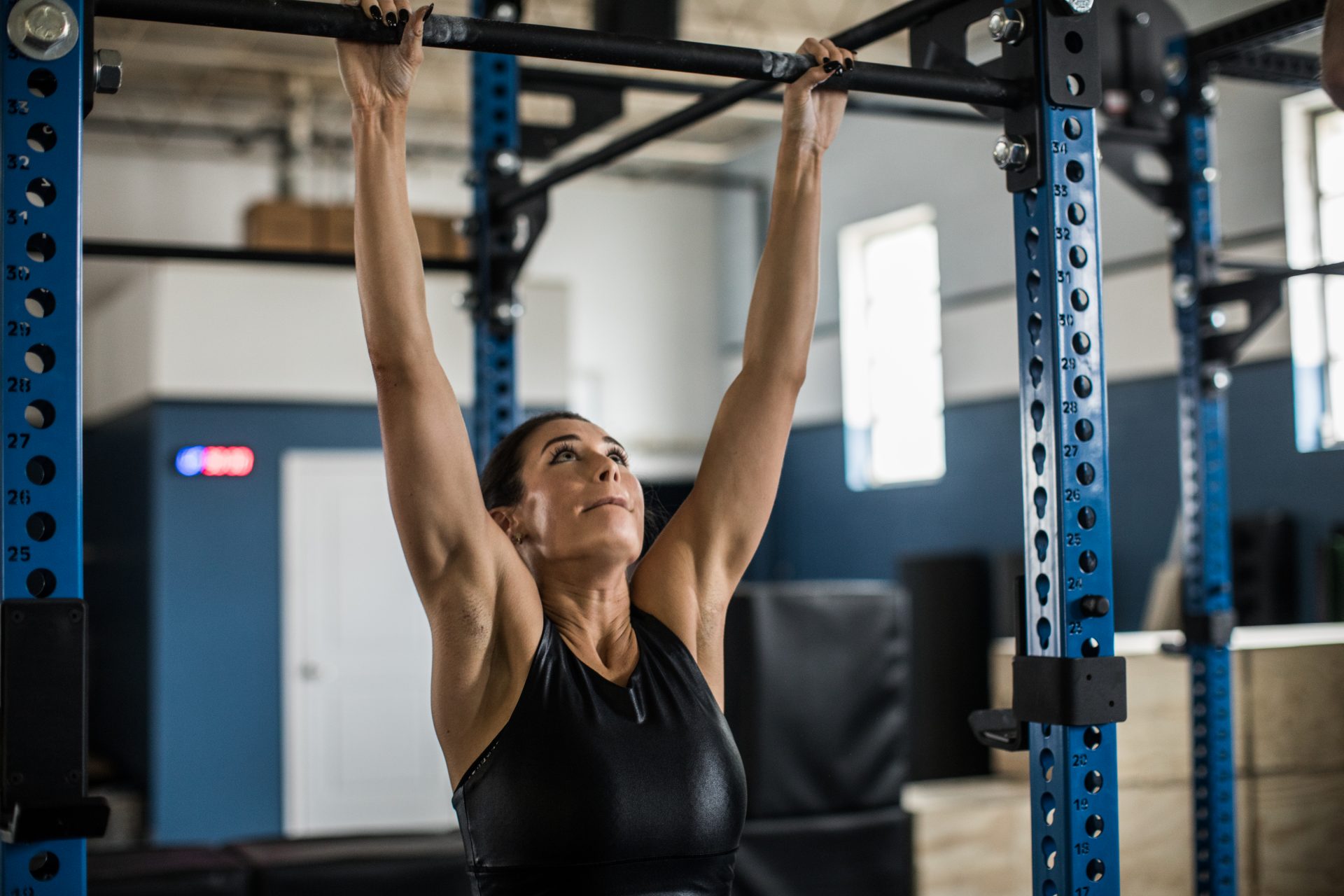How a weird period cycle can impact your workouts
If improving your performance and building muscle is your goal, you should pay attention to what your menstrual cycle is doing. It turns out, amenorrhea can lead to a bigger risk of injury.
Whether it’s finding period pants that don’t create a VPL under your leggings or workingthrough bloat, cramps and fatigue at different points in the month, menstrual cycles undoubtedly complicate your workout routine. But if you think it would be easier to train without a cycle at all, you’d be wrong.
There’s a currently unknown but potentially ever-growing amount of women dealing with period loss, known as secondary amenorrhea. Many of them have lost their period due to a syndrome called RED-S (relative energy deficiency in sport) – essentially, under-fueling and over exercising has caused their periods to go on strike.
You may also like
Low energy: how to properly fuel your body to compliment your exercise
While training with no periods might sound like a dream on the surface, period loss is really not something to aspire to if your goal is to smash your workouts. Not only is losing a period a sign of hormonal complications, it can actually increase your risk of injury and reduce your performance.
Can irregular periods impact your training?
“When someone has functional hypothalamic amenorrhea most of their reproductive hormones – that is FSH, LH, oestrogen, testosterone – will be downregulated or in worst case, completely flatlined,” explains sports dietician Renee McGregor, a specialist in female health and sport. While oestrogen has long been linked with bone density, hence the weakening of bones after menopause, it also has a huge impact on your muscles and joints.
“Low levels of oestrogen mean that growth hormones can not be produced and no adaptation to training can occur. This means that there will initially be a deterioration to training and fitness, with an eventual stagnation. Similarly, oestrogen is really important in helping with lean muscle mass gains. Low levels means that body composition will also be altered,” she says. This naturally puts you at a greater risk of injury at different times throughout the month as your oestrogen peaks and troughs. But having none of these hormones at all is a more serious story.

In a 2019 research paper from Frontiers in Physiology, researchers found that 24 weeks of oestrogen deficiency resulted in a 10% decrease in strength and a reduction in muscle mass. This isn’t just important for performance though – the reduction in these hormones can also cause damage.
“When oestrogen in particular, but also LH to a lesser extent, is reduced, there is a much higher risk of soft tissue injury, bone stress and, worst-case, fractures,” McGregor adds. In a study from the Journal of Athletic Training, it was reported that athletes who reported menstrual irregularities sustained a higher percentage of severe injuries than athletes who reported normal cycles. And a 2012 study reported that amenorrheic athletes have up to 20% less lumbar spine bone mineral density than athletes with periods.
How long it takes for your amenorrhea to cause this weakening of muscle and bone damage varies. “While you may not notice a decline in training immediately, it is only a matter of time before it catches up and impacts performance and injury rates,” says McGregor.
You may also like
Period problems: “I haven’t had a period in 6 years – here’s how it affects my health and fitness”
The long term impact of period loss on muscle and bone health
The main risk of low oestrogen throughout your lifetime is osteoporosis. “The risk factor will be different from woman to woman and depends on a number of factors such as genetics, lifestyle prior to amenorrhoea and the age at which amenorrhea started,” McGregor explains.
For example, if you lost your period in your teenage years – a critical time for building bone mass – you might be “more susceptible to injury and continue to be for a long while even after periods are restored,” McGregor says. “Generally, the longer you go without your period, the more of a concern.”
The irony is that exercise, particularly weight-bearing exercise, is one of the best ways to improve your bone density. But exercise-induced amenorrhea is also a huge cause for concern over long-term bone density and other workout related injuries. If that’s not reason enough to talk to your GP or a medical expert about your period problems, we don’t know what is.
Images: Getty
Source: Read Full Article
